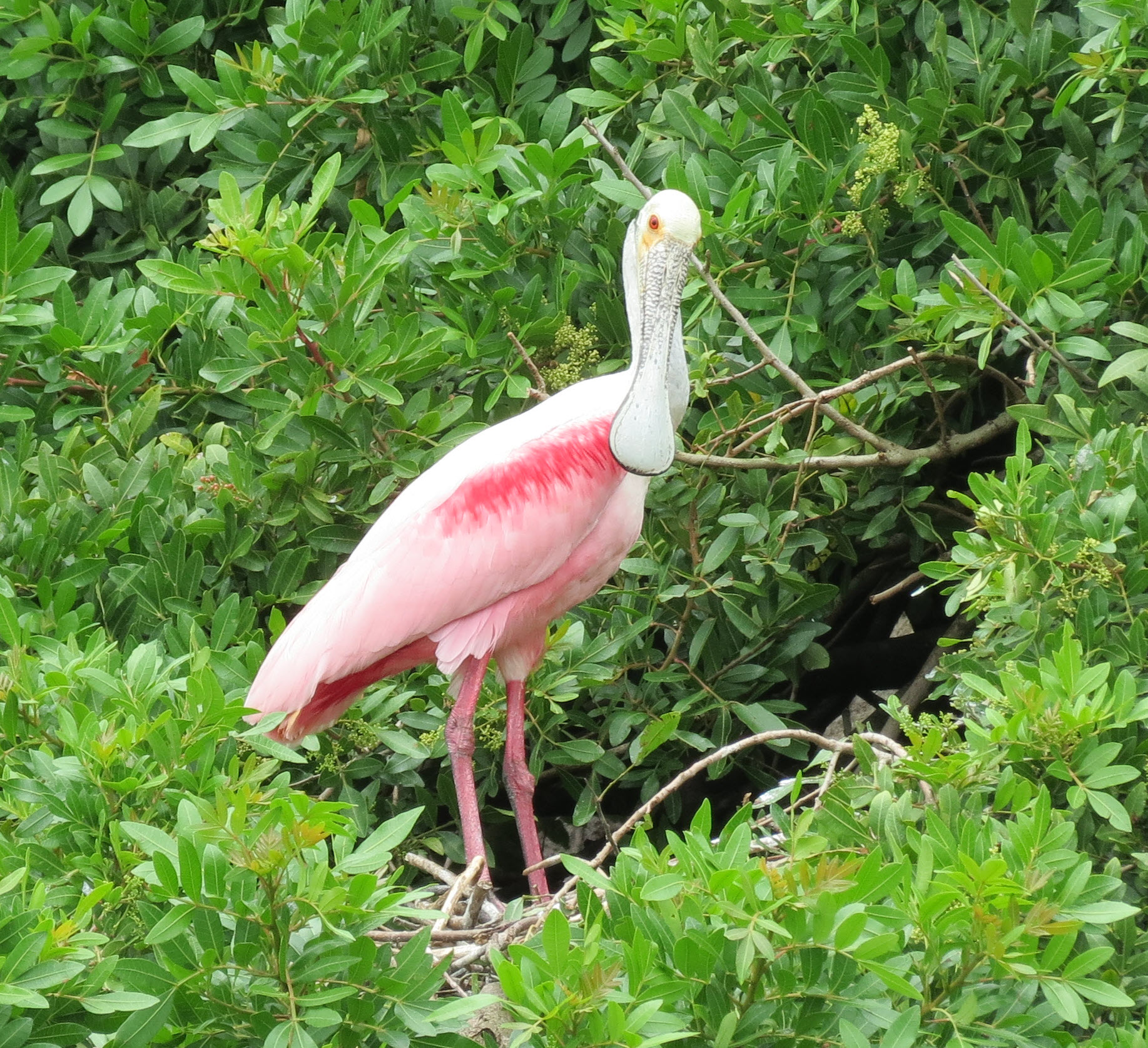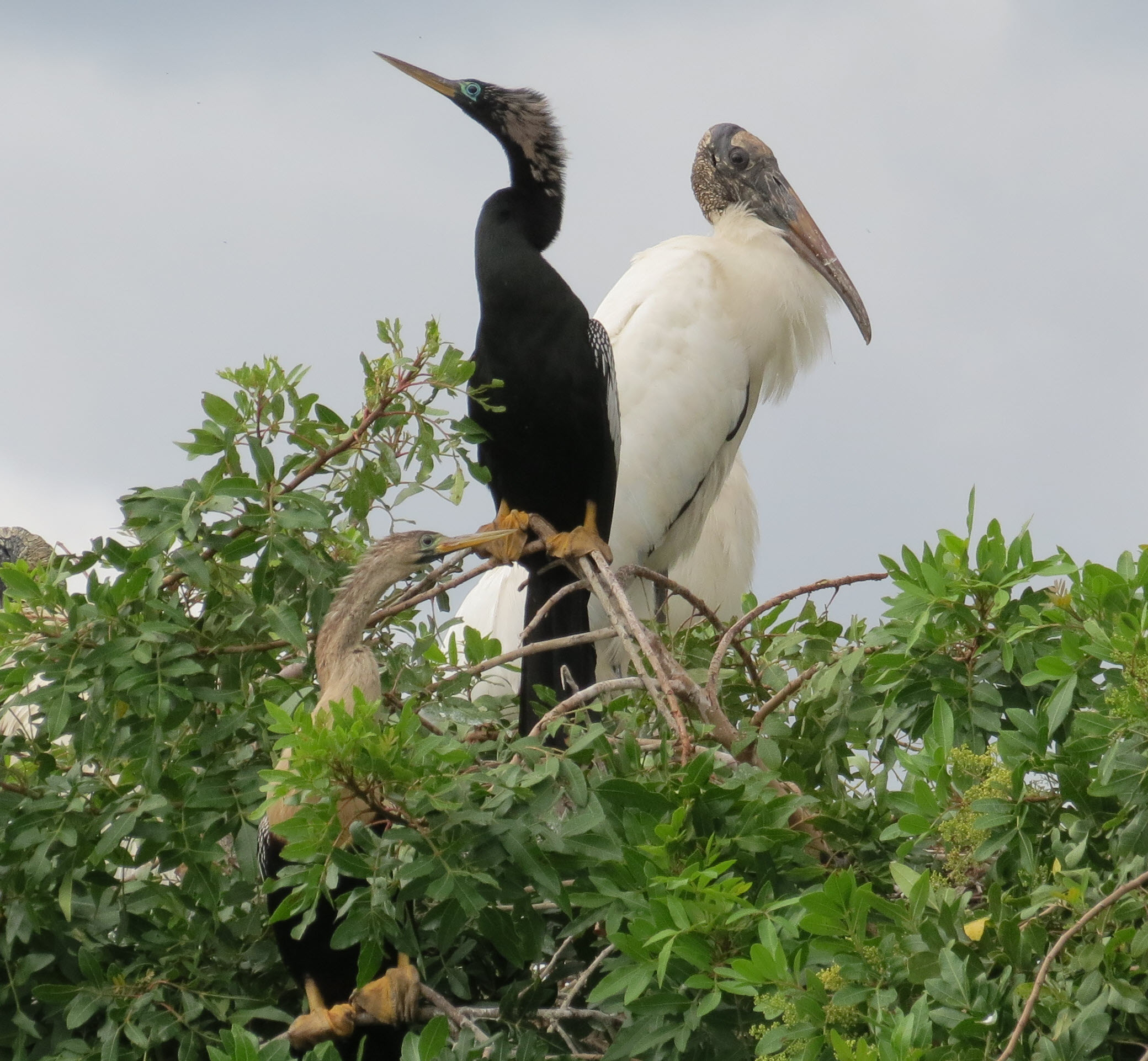Lake Somerset Rookery
Our very own Lake Somerset is home to many varieties of Central Florida wading birds, including Wood Storks, Roseate Spoonbills, Anhingas, and Great Blue Herons. This lake is a prime nesting colony for many other wading birds but has the largest colony of wood storks. Signs are posted around the island so that boaters will keep their distance from the islands to prevent disturbing nests.
The Wood Stork
The Wood Stork is an expansive species which nests in colonies (rookeries) while roosting and feeding in flocks. Wood Storks use freshwater and estuarine wetlands as feeding, nesting, and roosting sites. Although storks are not habitat specialists, nesting success and the size of regional populations are closely regulated by year-to-year differences in the quality and quantity of suitable habitat. All available evidence suggests that regional declines in wood stork numbers have been largely due to the loss or degradation of essential wetland habitat. Good feeding conditions for the Wood Stork usually occur where water is relatively calm and uncluttered by dense thickets of aquatic vegetation. Wood Storks will also return to the same colony for many years so long as that site and surrounding feeding habitat continue to supply the needs of the birds.
Any activity including, but not limited to, harassing, disturbing, harming, molesting, pursuing, etc. wood storks, or destroying their nests is illegal.
The greatest threats to colony site are from human disruption and predation. It is essential that these fledging birds have little to no disturbance.
Guidelines & Recommendations
for Feeding & Nesting Colonies:
- There should be no human intrusion into feeding sites when storks are present.
- Human activity should be no closer than 300 feet where solid vegetation exists and 750 feet where there is no vegetation screen.
- The introduction of contaminants, fertilizers or herbicides into wetland that contain stork feeding sites should be avoided, especially those compounds that could adversely alter the diversity and numbers of native fishes, or that could substantially change the characteristics of aquatic vegetation.
- Increase in the density and height of emergent vegetation can degrade or destroy sites as feeding habitat.
Harmful Activities
The following activities can be harmful to the colony:
- Any lumbering or other removal of vegetation
- Any activity that reduces the area, depth, or length of flooding in wetlands under and surrounding the colony, except where periodic water control may be required to maintain the health of the aquatic, woody vegetation
- The construction of any building, roadway, tower, power line, canal, etc.
- Any unauthorized human entry closer than 300 feet of the colony
- Any increase or irregular pattern in human activity
Roseate Spoonbills are frequently found at the Somerset Rookery. They nest and roost in trees and shrubs along the water's edge. These birds are easily recognizable by their pink color and their long spoon-shaped bill.

Anhingas are large, slender waterbirds. Their dagger-like bills are a great tool for spearing fish. These birds are commonly found roosting and nesting alongside the Wood Storks at the Somerset Rookery.








